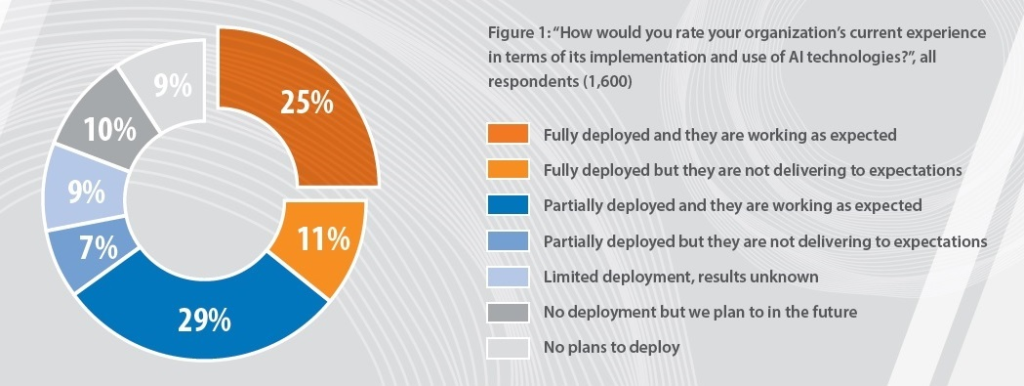Intelligent chatbots and personal assistants receive much attention recently even though enterprise AI is the most promising market for implementation of AI solutions. Businesses are still to discover what artificial intelligence can offer in reality, how to implement enterprise AI systems, and which business processes and procedures AI should power in order to get highest return on investment (ROI). Enterprise AI is still widely viewed as implementation of automated systems and development of chatbots performing customer support tasks. This is the simplest possible application of current AI technologies, though. Conversational understanding is just the top of the iceberg when it comes to AI. Actually, the entire business process should utilize Machine Learning and AI technologies for an enterprise to get sustainable results and acceptable ROI in the long term.
Enterprise companies purchase some $4 trillion in software and services each year. Bots are only a small portion of this market and though they provide acceptable ROI and usually increase sales the future lies with AI solutions that optimize core business processes. Examples of such processes include lead generation, data management and control, infrastructure management, financial planning and overall resource optimization.

Most organizations realize they need to deploy one AI solution or another. According to an Infosys survey, only 9 percent of all 1,600 respondents worldwide do not plan to deploy and use an AI technology. Encouragingly, 25 percent of organizations state that their fully deployed AI systems are working as expected and 29 percent reveal their partially deployed AI solution is delivering as planned.
Businesses wishing to get highest ROI from enterprise AI are looking at solutions solving problems related primarily to big data automation and predictive analytics. The next step, however, is to deploy neural networks and some 31 percent of organizations plan to implement such a system in the near future, the survey reads. In fact, fact for a business to get highest ROI rate, it must deploy AI for optimization of internal processes like financial modelling and lead generation. Systems utilizing deep learning are able to evolve over time thus further maximizing ROI and providing continuous optimization of business processes and procedures.
Proprietary data is one of the critical factors for implementation of such systems. Enterprises must realize that an all-purpose AI solution will rarely deliver to expectations. Machine learning algorithms, and AI solutions as a whole, must be fed with sufficient proprietary data to produce valuable results, resulting in higher ROI.

(Source: Techemergence)
Predictive analytics can improve one’s deal closing rate only if based on reliable proprietary data. Any enterprise AI solution should be adopted alongside a data-gathering platform that is able to collect and process huge amount of data – be it a CRM, ERP or another enterprise software system.
Only then, a business can get most out of AI and collect measurable results concerning improved productivity, sales and lead generation. Actually, the biggest concern of all AI developers is whether sufficient data will be available. Next, we have to integrate data with business processes and only then a machine learning software will help boost profits.
For an AI solution to be worthwhile, a business should first identify the right problem to solve. Then, it have to assess whether there are data sources that can provide sufficient data to solve the problem using AI. Implementation is the last step, which nonetheless requires expert knowledge of the very system to be deployed.
Harvard Business Review provides a sample of a New York trader who managed to boost sales leads by the extraordinary 2,930 percent within a quarter. This remarkable result is achieved using an AI-powered marketing platform. Nonetheless, there was a comprehensive CRM system in place beforehand, where all the required data was stored.
It only needed proper analysis, some predictive analytics and tailored lead generation to get a result. This is the actual future of enterprise AI. Bots may be funny and increase website visits but sales will usually increase marginally. AI is capable of much more. It can boost sales, identify loads of prospects, and close deals providing fantastic ROI once businesses realize that enterprise AI is about analytics, core processes optimization, and overall business and deal management.
By Kiril Kirilov





